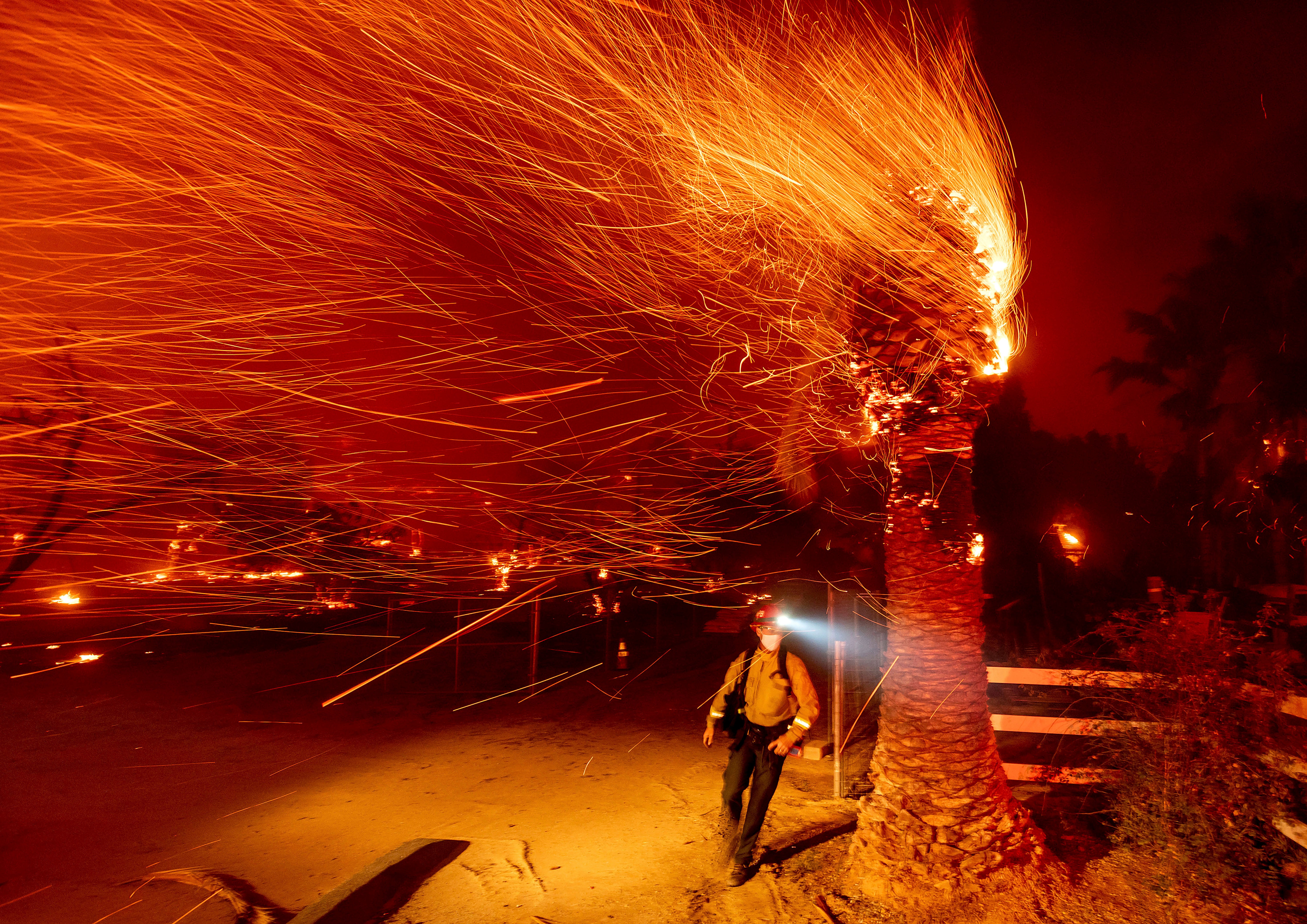Climate crisis: Ferocious winds reignite wildfires in California in what should be rainy season
Evacuations were ordered in Santa Cruz County, south of San Francisco, where winds sparked new fires in an area where a summer blaze torched 1,500 buildings

Your support helps us to tell the story
From reproductive rights to climate change to Big Tech, The Independent is on the ground when the story is developing. Whether it's investigating the financials of Elon Musk's pro-Trump PAC or producing our latest documentary, 'The A Word', which shines a light on the American women fighting for reproductive rights, we know how important it is to parse out the facts from the messaging.
At such a critical moment in US history, we need reporters on the ground. Your donation allows us to keep sending journalists to speak to both sides of the story.
The Independent is trusted by Americans across the entire political spectrum. And unlike many other quality news outlets, we choose not to lock Americans out of our reporting and analysis with paywalls. We believe quality journalism should be available to everyone, paid for by those who can afford it.
Your support makes all the difference.Ferocious winds in California on Tuesday reignited wildfires in what is typically the state’s rainy season.
Evacuations were ordered in Santa Cruz County, south of San Francisco, after winds sparked new fires in an area where a summer blaze torched 1,500 buildings.
Last year saw a catastrophic and unprecedented wildfire season in California, as the state grappled with increasing effects of the climate crisis. More than 6,500 square miles burned last year, twice the area of the previous modern record, and around 30 people died.
Cal Fire, the state’s firefighting agency, issued a red flag warning in parts of the state on Monday. Cal Fire said it had responded to around a dozen vegetation fires in San Mateo and Santa Cruz counties in 12 hours.
“Fires within the #CZULightningComplex burn area were regenerated by high winds,” the local unit of the California Department of Forestry and Fire Protection tweeted.
“Other units in the area are battling their own vegetation fires as well.”
The CZU “Complex” – which means multiple fires located in the same area – started in the early hours of 16 August last year, after thousands of bolts of lightning struck.
It raced across more than 135 square miles (350 square kilometers) in San Mateo and Santa Cruz counties, causing one fatality.
Wildland fires can continue to smolder long after open flames have disappeared. In areas of high winds, some public utility providers had shut off power to prevent downed or damaged power lines from sparking.
Parts of California has been suffering weeks of severe drought conditions, and the remainder is considered abnormally dry. Winter snowfall and rain have been significantly lower.
Meteorologist and climate journalist, Eric Holthaus, tweeted: "Dozens of new fire starts today in California with winds gusting above 70mph and humidity down to summertime levels.
“It's mid-January, the peak of what should be California's rainy season. We are in a climate emergency.”
The high-wind event is expected to last through Wednesday in the state.
AP contributed to this report



Join our commenting forum
Join thought-provoking conversations, follow other Independent readers and see their replies
Comments